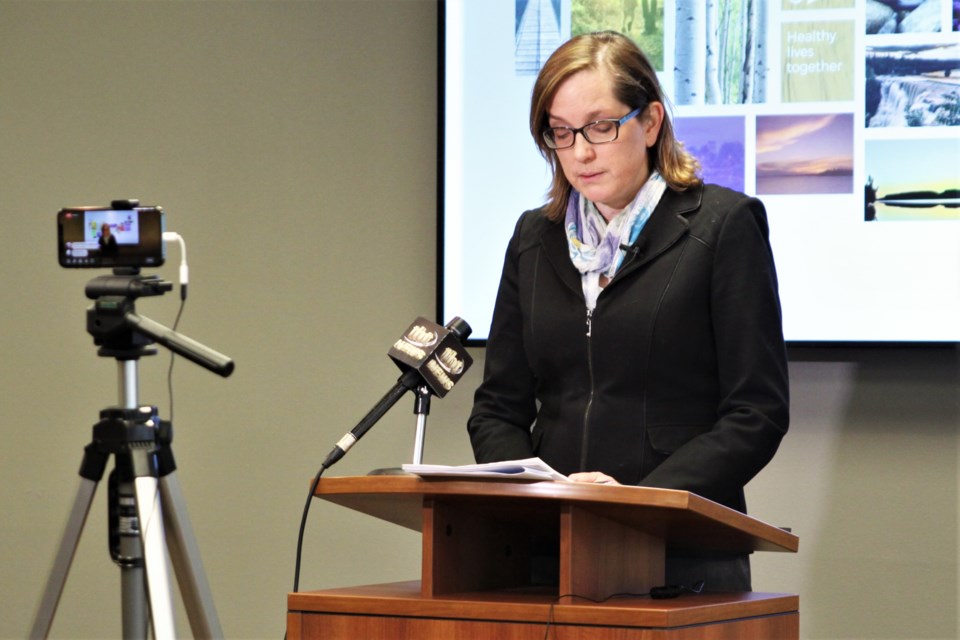THUNDER BAY – A looming province-wide lockdown is less urgently needed in northern Ontario, says Thunder Bay’s medical officer of health, but could help tackle local numbers that have remained stubbornly high for weeks.
A shortened two-week lockdown ordered by the provincial government in the north is "reasonable," DeMille said, and could help lower active cases in the district, which sat at 98 on Tuesday.
“We’re in a precarious situation with our case numbers – we’re really not seeing them go down, and we’re maintaining a level I’m fairly uncomfortable with,” DeMille said Tuesday. “I do think two weeks can help us, but people have to do the right things – people have to stay home during that time, and I think we could see our numbers get lower.”
While local indicators have aligned recently with the orange stage in Ontario’s COVID-19 response framework, two stages removed from a lockdown, DeMille said that framework had proven inadequate to control a worsening situation in the province.
“I appreciate the overall approach, that a framework was laid out, but it wasn’t fully effective, and stronger measures were needed,” she said. “It wasn’t enough to really control or reduce the spread of the virus, and we saw higher case numbers and more hospitalizations.”
Residents should leave home only for essential reasons during the lockdown, DeMille said.
“This is really what we did in March and April, where we all essentially stayed home and interacted only with the members of our household,” she explained. “If you have to get food, if you have to go to a pharmacy or seek medical care – those are the reasons to leave your home.”
She encouraged those who could to adopt the measures now, before they officially go into force on Dec. 26. However, she wasn't concerned about the delayed implementation of the lockdown, at least in the North.
The lockdown could be effective by reducing contact at workplaces, schools, and gatherings - areas DeMille said account for a large amount of transmission.
A major outbreak at the Southbridge Roseview long-term care home that claimed a 14th life Tuesday is no longer a major driver of new cases, DeMille noted.
“The spread we’re actually seeing right now is not so much in the long-term care home – that’s not driving our numbers,” she said. “We’re seeing spread in workplace settings, we’ve had a couple of outbreaks declared in the last couple of weeks around schools, and just people getting together with other households.”
Students in the region won’t return to schools until Jan. 8, while many stores will need to close all but curbside pickup and delivery.
There are few reports of COVID-19 being transmitted between customers and staff in stores, DeMille stated.
“The transmission from a staff person to a customer? That’s really not driving case numbers, whether it’s here or in other jurisdictions,” she said. “That interaction tends to be fairly short and not enough to transmit the virus, especially when people are maintaining that two-metre distance or wearing a mask.”
However, the closure of businesses could help reduce workplace transmission.
“The most common kind of spread in [stores] is often from the workers themselves,” said DeMille. “Staff are often together for a significant amount of time, even though they’re trying to maintain two metres distance. We’ve certainly seen spread in workplaces, including retail.”
Local business leaders have expressed understanding over the provincial measures.
